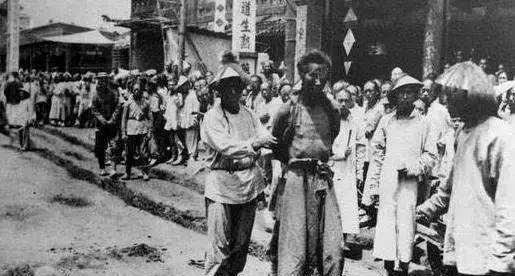History has its own life, it is like a person, both easy-going and self-respecting. ——Yu Qiuyu
In feudal society, Confucian culture advocates benevolent government and love for the people, and strives to unify the world. However, both the love of the people and datong are implemented in the context of centralized monarchy. Therefore, if you want to seek human rights under the feudal system, you can only say that it is a fool's dream. Some rulers, in order to expand their career territory, maintained their dignity and status as monarchs. Criminal laws are often established to deter those who break the law or attempt to rebel. However, unlike modern formal laws and regulations, some ancient criminal laws can be described as extremely perverted. For example, lingchi, waist chopping, cooking, etc.

For the successors of the modern society, whether they cook or not, in our inherent thinking, cooking is a specific project belonging to the kitchen. History, however, tells us that cooking is an extremely cruel criminal law. After the wok filled with water and oil is boiled and boiled, the punishment of throwing the prisoner into it and boiling or frying it is also called cooking, wok cooking, ding cooking, etc. Many emperors in history have used this kind of torture, and not only did the ministers at the bottom not dissuade it, but even the historians did not dare to record this act.
The punishment of cooking first appeared in the last period of the Shang Dynasty. At this time, the King of Lu was faint and the internal contradictions were very sharp, and in order to maintain his precarious rule, the King of Lu imprisoned Bo Yikao, the eldest son of Ji Chang of the Zhou Kingdom, who was the most powerful of them, in YinDu. Bo Yikao's life in Yindu was very sad, and he was either humiliated by the coachman of the King of Yin or scolded by others. One day, Bo Yi kao somehow angered the king of Qiu and was sentenced to cooking by him. In order to humiliate Xi Bohou, who was praised by the world as a beloved son, the King of Lu had people send Bo Yi kao's meat soup to Ji Chang to eat.
The death of Bo Yi kao greatly aroused the anger in Xi Bo hou's heart. At the death of King Huan, the Zhou Dynasty took its place as a new center of power. It is reasonable to say that Bo Yikao died of cooking, and the Zhou Dynasty should deeply abhor this criminal law. But who knows, the Zhou Dynasty used it more frequently than during the time of the King of Sui. Among them, during the reign of King Yi of Zhou, because the State of Qi did not pay tribute, it directly cooked the Duke of Qi. During the reign of King Jing of Zhou, because he could not find the place where baigong of the Chu state died, he cooked his apprentice Shi Beg.
After the Qin Dynasty unified the world, it paid attention to governing the country by law, so it gave legal guarantees to the punishment of cooking, and increased corporal punishment. During the Han Dynasty, the Qin system was used. Liu Fu, the king of Guangchuan, was cruel in temperament, and together with the queen, he forced Tao Wangqing to commit suicide by throwing himself into a well. The orderers salvaged his body mixed with peach ash and poison, and boiled all the flesh and bones before stopping. The use of cooking punishment did not slowly converge until the Sui Dynasty and the Southern Song Dynasty.
The reason why this kind of torture was not persuaded by the ministers, and there was no historical record of it. It was entirely because they did not dare, because as soon as they opened their mouths or made a move, they were the next to be executed. After all, no matter how arbitrary and violent the emperor is, he does not want his name to be scolded for a thousand years.